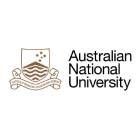Master of Science (Advanced) in Theoretical Physics
Master of Science (Advanced) in Theoretical Physics
A mastery of theoretical physics allows you to unlock the secrets of our universe. From quantum field theory to general relativity, theoretical physics not only answers the most fundamental questions of our existence but is also at the forefront of scientific discovery. Take gravitational waves for example. Researchers at The…
Categories
COURSE DESCRIPTION
A mastery of theoretical physics allows you to unlock the secrets of our universe. From quantum field theory to general relativity, theoretical physics not only answers the most fundamental questions of our existence but is also at the forefront of scientific discovery. Take gravitational waves for example. Researchers at The Australian National University supplied equipment and techniques used in the detection of gravitational waves, opening up a new avenue for astronomical discovery. This global scientific collaboration was the culmination of a 100-year journey that started with Einstein’s theory of general relativity. The Master of Science (Advanced) in Theoretical Physics brings students to the cutting edge of research in an interactive training environment, being taught by some of the world’s leading theoretical physicists. The Master of Science (Advanced) in Theoretical Physics provides you with the opportunity to extend your practical and coursework experience in theoretical physics with the development and implementation of a research project supervised by an academic. This is particularly relevant to those who wish to benefit from the research strengths of ANU and pursue a career in research. If you are interested in big questions, like how the universe works or how elementary particles interact with each other to form nuclei and stars, then you will enjoy learning about quantum field theory. With applications such as particle physics and condensed matter, quantum field theory is arguably the most far-reaching attempt to combine special relativity and quantum physics in a unique framework. Drawing on world leading expertise from the ANU Research School of Physics, this program will provide you with the techniques and skills necessary for a bright future in research or related careers in education, science and industry.
Career Options
ANU ranks among the world’s very finest universities. Our nearly 100,000 alumni include political, business, government, and academic leaders around the world.
We have graduated remarkable people from every part of our continent, our region and all walks of life.
REQUIREMENTS
Applicants must present a Bachelor degree or international equivalent
- with a minimum GPA of at least 5.5/7.0
- with at least 8 courses in a cognate discipline, which must also have a minimum GPA of 5.5/7.0.
The GPA requirement for this program must be met by both the program as a whole, as well as by the 8 courses in a cognate discipline. Where more than 8 cognate courses have been completed by the applicant, ANU will take the best 8 courses when assessing the cognate GPA.
The GPA for a Bachelor program will be calculated from (i) a completed Bachelor degree using all grades and/or (ii) a completed Bachelor degree using all grades other than those from the last semester (or equivalent study period) of the Bachelor degree. The higher of the two calculations will be used as the basis for admission.
English Language Requirements
IELTS Academic and IELTS UKVI Academic [excluding One Skill Retake and IELTS Online] – Overall score of 6.5 overall with minimum 6.0 in each band.
TOEFL iBT Paper Edition and TOEFL iBT [excluding Paper Edition and Home Edition] – Overall score of 80 (Reading – 20; Writing – 20; Listening – 18; Speaking – 18).
Cambridge C1 Advanced – Overall score of 176 minimum 169 in each band.
PTE Academic and PTE Academic UKVI [excluding PTE Academic Online] – Overall score of 64 minimum 55 in each band.
EDUCATIONAL INSTITUTION
The Australian National University (ANU) is a public research university and member of the Group of Eight, located in Canberra, the capital of Australia. Its main campus in Acton encompasses seven teaching and research colleges, in addition to several national academies and institutes.

